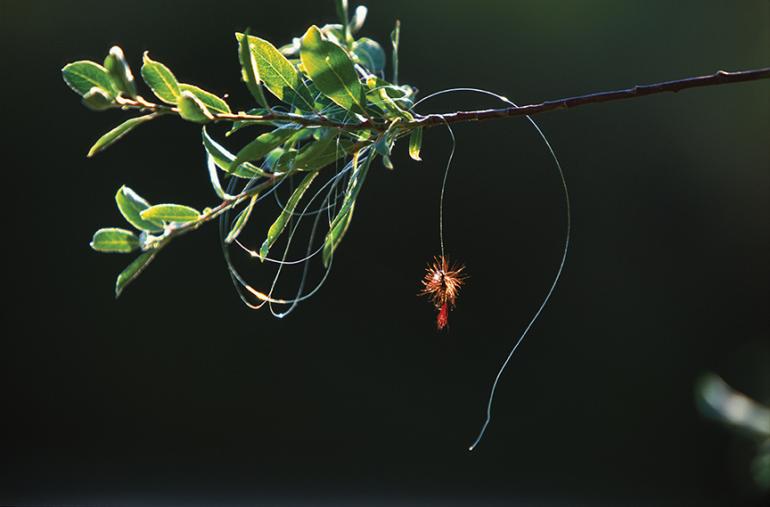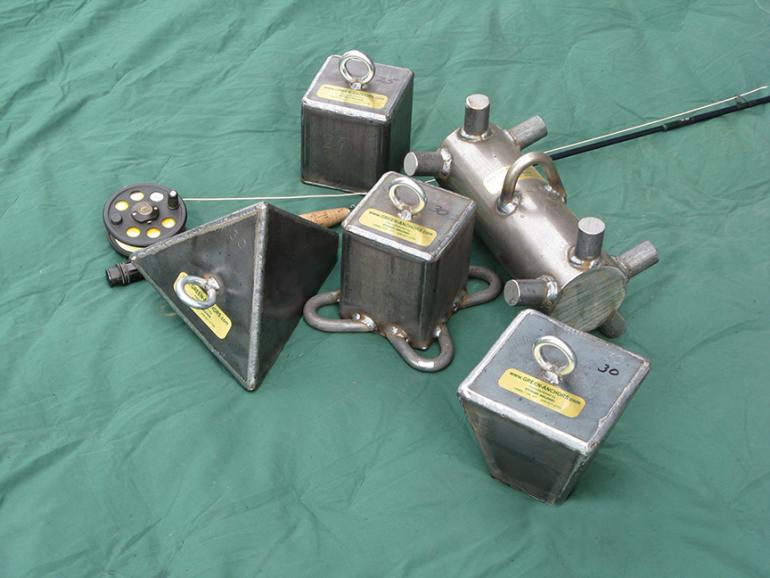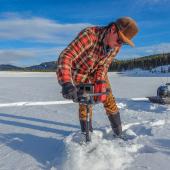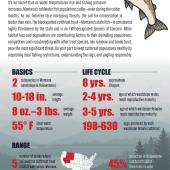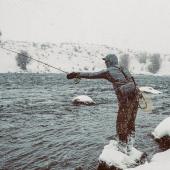Unintended Consequences
You may be doing more damage than you think.
It’s a classic summer day on the water: the afternoon passes quietly, the only sounds are the riffling river and the sigh of a reel slipping line. This is what we live for as anglers in Montana—a day well-spent in this vast natural playground we call home. But these being some of the most pristine watersheds in the U.S., it’s important to understand how our actions affect them. Here are some ways you might be polluting without even realizing it.
Unsafe Scraps
Clipped-off tippet, tangled line, lost lures, mangled splitshot, spent strike-indicators: all this adds up. Much of this material contains harmful chemicals, like lead or PCBs. Even though a lot of modern fishing equipment is biodegradable, how long until it degrades? Long enough for a fish to swallow it? For a duck or raptor to become ensnared? Though the occasional break-off is unavoidable, steps can be taken to mitigate the impact. Double-check your knots and wade out close to a snag before snapping it off. Think before you cast, and take extra time to look around and pick up anything that isn’t rock, water, or fish.
Heavy Metal
Though you may treasure grandpa’s tackle and find it cathartic to cast with his ancient rig, if you lose a weight (and you’re bound to) you could do more damage than you think. Older weights are made of lead (most modern companies now use tungsten or other soft metals), which is harmful to waterfowl and other riparian creatures. Make sure you update and know what’s in your box—depending on where you fish, grandpa’s weights may very well be illegal. In 2010, the National Park Service banned lead tackle (though this had been implemented in Yellowstone years prior), due to lead poisoning causing the death of loons, swans, and other wildlife.
Oil Slicks
Ever cast a freshly gelled-up fly and notice the oil slick on the water? Floatant, no matter how miniscule the amount, is ending up in the river. When we consider the scale, perhaps we alone are doing no significant or immediate damage to the water—but again, it’s the cumulative effect that matters. Try a few false-casts to shake things out before slathering unnecessary gobs of Gink onto your fly. The best option all around is to switch to a product from a company supporting silicone-free and environmentally friendly floatants, like Loon Outdoors.
Alien Invasion
Anglers who fish on multiple bodies of water need to prevent the spread of invasive species from one water body to another. Use the “clean, inspect, dry” method on any and all equipment that comes in contact with the water—that means boots and waders, boats, trailers, and even nets and buckets. The damage potential is huge with these critters—you can’t be too safe.
Get the Lead Out
Anchors are a necessary part of any driftboat setup, but while you might not know it, they could be harming our rivers and lakes. Over time, lead wears down and releases toxins into the water, adversely affecting fish and poisoning the water. Luckily, Green Anchors has a solution: 100% recycled-lead anchors, encased in 3/16” steel. Bring them your old anchor, and they’ll refinish it, or buy a custom-made 100% iron anchor from them. Iron is a natural, non-toxic element that develops a light-brown rust and if lost, will blend into the river bottom. So whether you go the recycled route, or buy a new iron anchor, you’ll be doing your part to prevent future pollution of Montana’s lakes and rivers. —David Tucker

